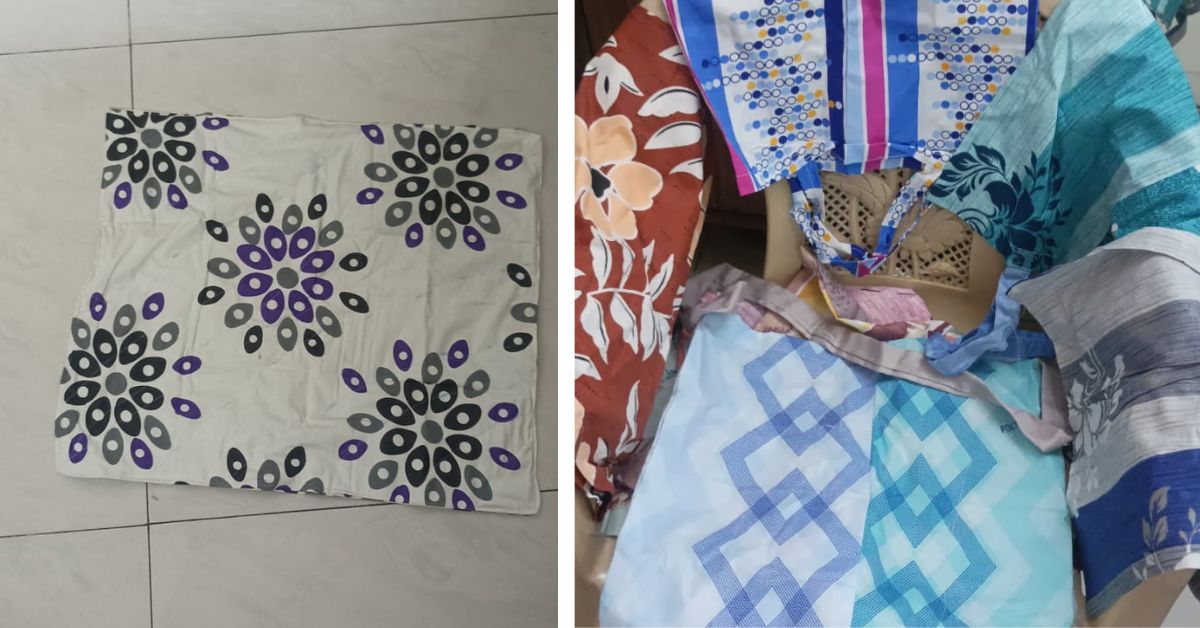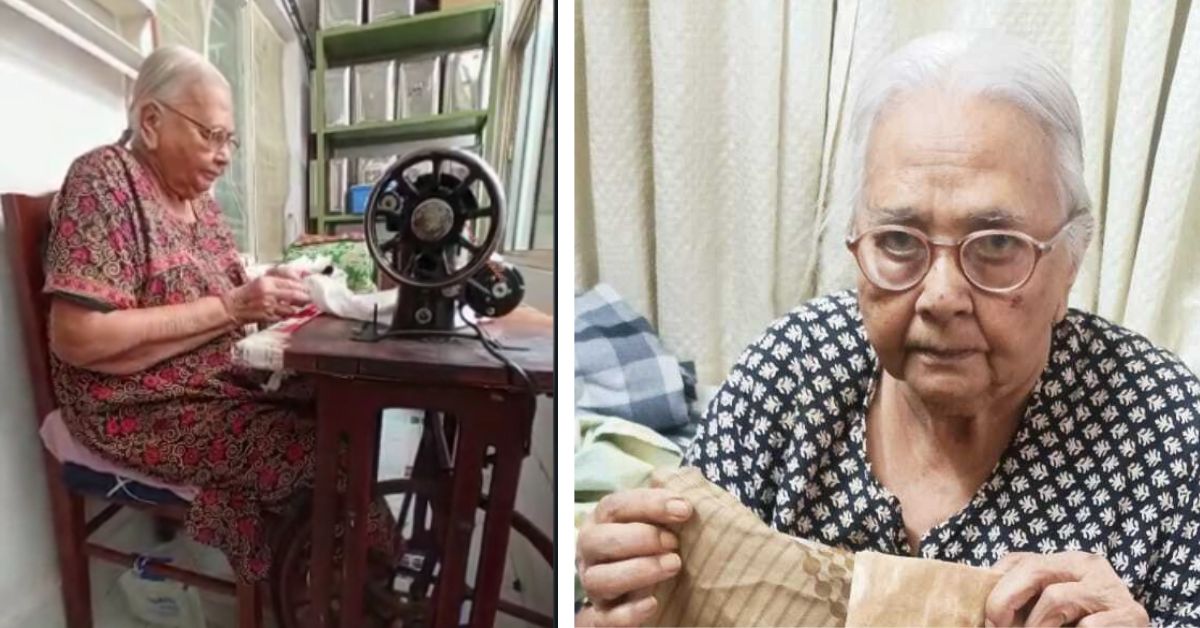It has been eight years since Madhukanta Bhatt first began her mission to eliminate textile waste and the use of plastic from earth. In an attempt to do so, she has been sewing waste cloth bags every day since 2015.
The Hyderabad resident notes, “I don’t like sitting idle, and this is for the environment.” The 93-year-old notes that her days are busier than any average person in their 90s. She wakes up at 7:30 am, takes a bath, does her puja, and after having breakfast, heads straight to her sewing machine.
She distributes those bags to people across Hyderabad for free. So far, she has made over 35,000 cloth bags from waste material that would have otherwise ended up in landfills.
“I love stitching and this way I can contribute to saving the planet,” she tells The Better India.

Sewing for passion and the planet
Madhukanta says that she was born in a tiny village in Jamnagar district, Gujarat, in 1930, in an area where girls were not sent to school. As a result, she received no formal education.
“I was 18 years of age when my parents married me off. It was after my marriage that I moved to Hyderabad with my husband. Always a keen learner, I wanted my kids to study in a good school to get an education I did not get,” she says.
When she moved to Hyderabad, she did not speak any language except Gujarati. With no way to communicate with others, her sole focus became her kids. Her son Naresh notes, “We are five siblings — four sisters and one brother. I remember my mother being adamant that my sisters go to a particular convent school. She made sure we all got a good education. She also always had an inclination towards stitching, but never received any formal training for that.”
With her children in school and a lot of time on her hands, Madhukanta decided to pursue a desire she had held in her heart for years.
“Whenever I watched other women use a sewing machine, I would want to do the same as a child. But there was no chance of me getting a machine, because it was quite an expense at that time. I wanted to try it out and I started saving money,” she says.
“I would save money by cutting expenses, and after some time, I was able to buy a Usha sewing machine, which cost Rs 200 in 1955,” she adds.
While she was able to get a machine, Madhukanta was not able to afford training,
“Formal training was not possible, so I just took a very short one-month course to learn how the machine functions and how I can repair it. The sewing part, the cutting and designing I learnt by observation,” she says.
In a few months, Madhukanta became skilled in using the machine. “After that, I became more skilled and started stitching my own clothes, my children’s clothes and even blouses and petticoats for neighbours.”
‘Want to keep going’
On being asked why she continues to stitch, she laughs and says, “I can’t sit still. I don’t like to be free. I stitch because it is my passion, but then I realised how it can also help the environment. Plastic bags are the most common thing that can be seen with people and I make an alternative to that.”
Her son, Naresh says, “We saw that she had a passion and she wanted to follow it so I decided to help her in that. She sews almost eight bags a day and then we take them to distribute them.”
A hip injury a few years ago did not shake her determination. “Using a manual machine with an injured hip was not possible, so I decided to install a motor to help her sew,” says Naresh.
Naresh also notes that these bags are given to anyone and everyone. “From our vegetable seller to plumbers, family, friends, and friends of friends, everyone has a bag stitched by my mother. We also get in touch with NGOs who further distribute these bags to other people.”
As for the scraps, she sources them from tailors in her locality and a family friend who makes furniture.
“In these fields, a lot of fabric often goes to waste. We collect those fabrics, which otherwise would have been thrown away, and make them into cloth bags,” informs Naresh.
Devraj, a curtain tailor who lives near Madhukanta’s house says, “I have been supplying old clothes to her for five years. It is good to see the waste fabric go to use rather than end up as waste. I have used masks and bags they stitched from the waste fabrics, they did not look like they were from waste.”
Asked if she had any plans of retiring, Madhukanta promptly says, “Not a chance”. She wants to continue stitching more and more bags. A fan of cricket, she also keeps a few hours to watch matches these days while stitching bags. “People my age would want to retire and rest, but I want to keep going,” she says.
Edited by Divya Sethu
If you found our stories insightful, informative, or even just enjoyable, we invite you to consider making a voluntary payment to support the work we do at The Better India. Your contribution helps us continue producing quality content that educates, inspires, and drives positive change.
Choose one of the payment options below for your contribution-
By paying for the stories you value, you directly contribute to sustaining our efforts focused on making a difference in the world. Together, let's ensure that impactful stories continue to be told and shared, enriching lives and communities alike.
Thank you for your support. Here are some frequently asked questions you might find helpful to know why you are contributing?

